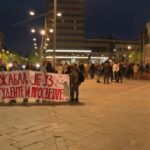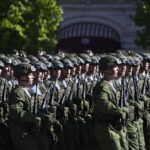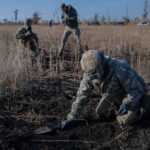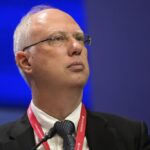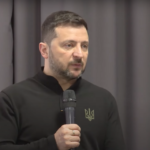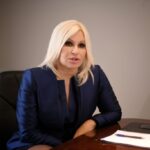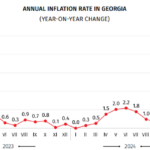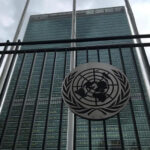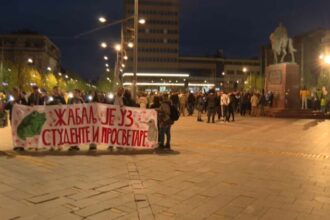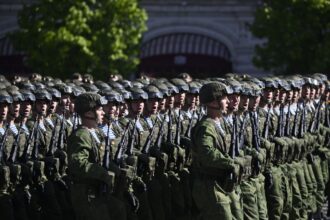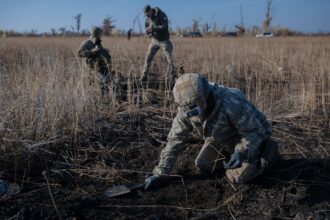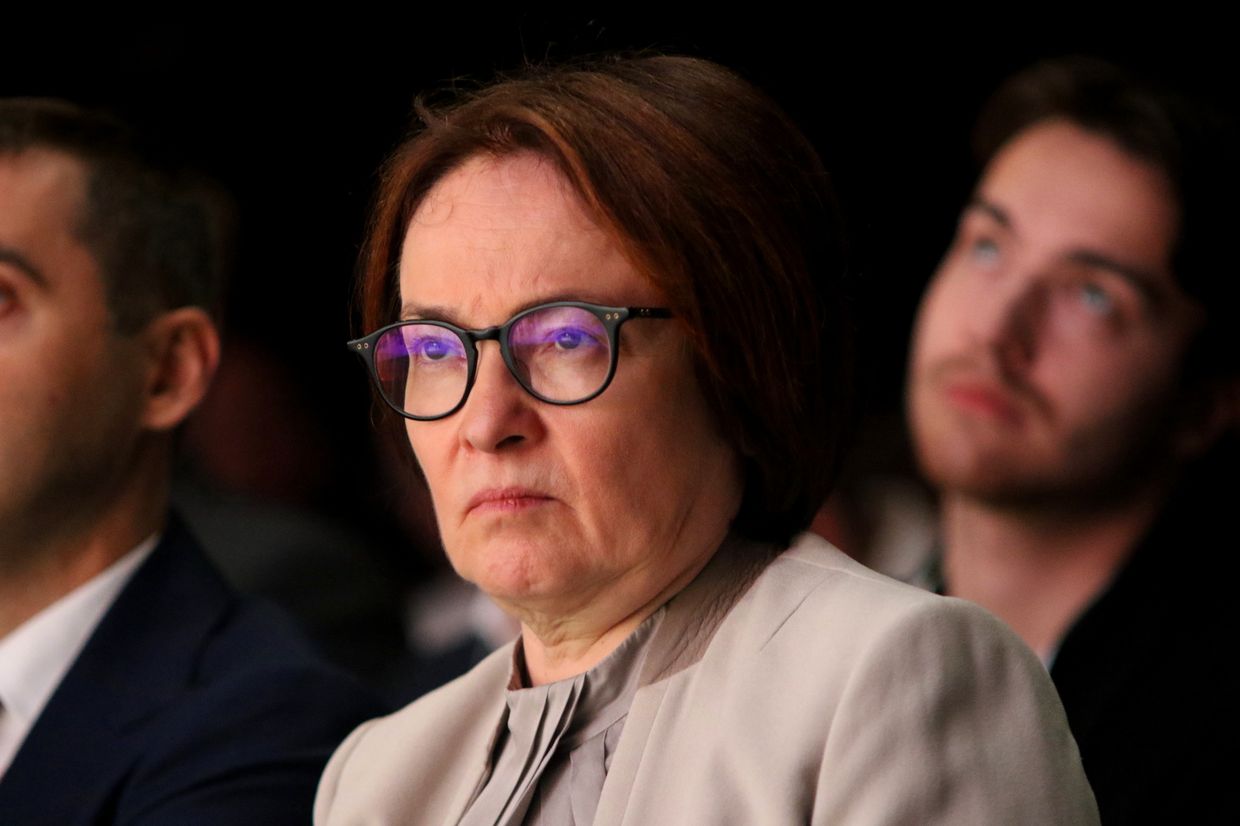The economic crisis in Russia, caused by Western sanctions and Putin’s war, has sparked rare dissent among key Kremlin allies who are questioning the central bank’s handling of the crisis.
Nearly three years after Russia’s full-scale invasion in Ukraine, the West has finally started to bite. This has sparked a fierce internal fight within the Kremlin about control of Russia’s Central Bank.
The Russian business community has been largely silent for the past two decades, even though Western sanctions have triggered an increase in real interest rates. In recent weeks however, business leaders openly criticized Elvira Nabiullina who has been in her position since 2013 and is rumored to have sought to resign when the war began in 2022.
While Nabiullina’s position appears to be in danger, the Kremlin insists that sanctions have strengthened the economy and made it more self-sufficient. This claim is demonstrably false, as Russian officials have repeatedly called on the West to lift their restrictions. Since Russia’s 2014 annexation Crimea, economic sanctions triggered three major currency crises: in July-August 20,23, February-March 2020, and March-April 2014. Nabiullina was able to contain the fallout each time by increasing interest rates.
But things have changed. In response to inflation concerns, the central bank raised their key interest rate on October 25, from 19% up to 21%. In a statement, the central bank noted that “inflation expectation continues to increase” and that the growth in domestic demand “significantly exceeds” the economy’s ability to expand supply of goods and service. The statement also noted that increased government expenditure and the growing deficit have “proinflationary” effects, necessitating a further tightening of monetary policy.
Inflation expectations are increasing and the growth in the domestic demand is outpacing the economy’s ability to expand its supply of goods and service.
The long-dormant Russian economic-policy discussion is heating up with official inflation at 9%, and a real rate of interest of 12%. The voices that are heard most often are not those of economists because the majority of independent experts have fled to avoid prison. Three prominent oligarchs spoke out against the central banks interest rate hikes.
Alexei Mordashov is the owner of the Severstal steel conglomerate. While Oleg Deripaska was not surprised by the criticism, he usually chooses his words with care. Mordashov acknowledged in late October that “the need to increase rates to limit inflation” is clear, but warned: “We may be approaching a situation where medicine becomes more dangerous than disease.”
Deripaska, like Mordashov, enjoys wide support from the Russian business elite. The real shock was when Sergei Chemezov – CEO of state-owned weapons giant Rostec – rebuked Nabiullina during a speech to the Federation Council, Russia’s upper legislative chamber, arguing that repeated rates hikes would lead most businesses into bankruptcy.
Chemezov warned that high interest rates could force Rostec’s exports of high tech products to stop. Other prominent business figures also voiced similar concerns. This is the first time that President Vladimir Putin has faced open criticism of his economic policies since he launched Russia’s conflict with Ukraine.
Since 2004, Putin, his cronies and their stooges have amassed fortunes through rigging contracts and systematically stripping Gazprom of its assets. This was documented by Boris Nemtsov & Vladimir Milov’s 2008 book “Putin & Gazprom.” The European sanctions have reduced Gazprom’s once enormous profits to huge losses. This has weakened the financial power of Putin’s allies, the “Gazprom Parasites,” such as Mikhail, Yury and Gennady Kovalchuk.
Milov recently argued that Chemezov is the dominant figure among Putin’s business partners. Despite his lack of qualifications, other than his KGB service in Dresden alongside Putin, he has leveraged the relationship to secure control over Russia’s armaments sector. This industry is now consolidated under Rostec. The company, which is backed by federal funding, oversees approximately 80% of Russia’s defense production.
Chemezov has also been a major winner from the war in Ukraine. Chemezov has benefited from recent changes in government personnel, most notably the dismissal Defense Minister Sergei Shoigu, because Shoigu is no longer willing to complain about Rostec products. Denis Manturov is Chemezov’s most trusted protege. He has been promoted to the position of First Deputy Premier. Manturov, as well as Alexei Dyumin – another Chemezov friend – now have seats on the powerful Security Council.
I knew Nabiullina back in the 1990s when she was a respected member of Russia’s liberal camp. In 2013, a fierce battle erupted in Putin’s inner circle about who would be the next head of the central bank – a liberal or statist. The main contenders for the position of central bank chief were Alexei Kudrin – the liberal former finance minister – and the statist hardliner Sergey Glazyev. Nabiullina, who was Putin’s economic advisor at the time, led the liberals in the election, helped by Putin’s fear of a financial crash similar to the one that brought down Prime Minster Sergei Kiriyenko.
Nabiullina appears to have set her priorities to control inflation, reduce the capital flight, stabilize ruble and support GDP growth. This is despite the fact that she expects this year’s 3.6% GDP rate to drop to 0.5-1.5% by 2025. She will be fired if she fails to control inflation. Ksenia Yudaeva was demoted and reassigned in 2023 to the International Monetary Fund. Putin made a cruel joke about Nabiullina at the recent BRICS Summit in Kazan. She was visibly upset.
The question is whether Putin will replace Nabiullina by a non-qualified loyalist, who will cut interest rates, allow inflation to soar and capital outflows increase, and send the Ruble into a tailspin. The economic crisis in Russia is directly related to the invasion of Russia by Putin and the subsequent Western sanctions. The only way to stabilize the economy of Russia is to end the conflict and withdraw its forces from Ukraine.
Editor’s note: Copyright, Project Syndicate. This article was originally published by Project Syndicate in November 2024 and has been republished with permission by the Kyiv independent. The opinions expressed in this section are those of their authors and do NOT purport to represent the views of Kyiv Independent.
Read More @ kyivindependent.com
